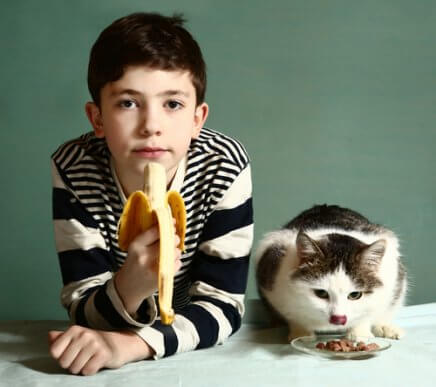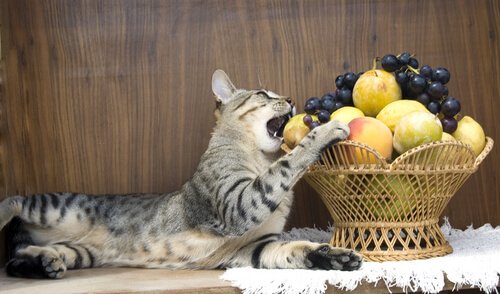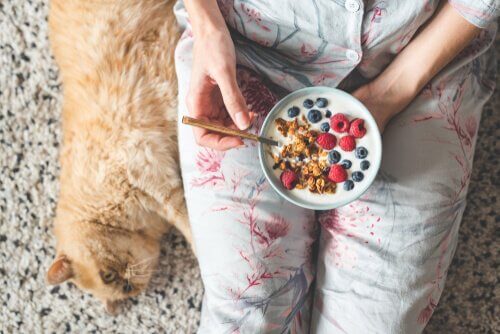Cat Nutrition: Safe Fruits for Cats

As a pet owner, it’s important to know that there are healthy and natural alternatives to traditional pet food. Before changing your animal’s diet, however, it’s important to do some research on the subject in order to find out what’s beneficial for him. With these tips, you’ll know which are safe fruits for cats, and you won’t be putting your feline friend at risk.
You should read these tips before you incorporate fruit into your cat’s diet.
If your pet doesn’t usually eat fruit, it’s likely that a sudden change in her diet will cause her diarrhea or vomiting. So, it’s best to introduce new foods little by little so that her stomach can get used to them.
It’s also important to keep in mind that fruits are high in sugar. We don’t recommend you introducing large amounts of them into her diet, as she could end up suffering from obesity, with all of its consequences. Some varieties of fruits have less sugar than others, and those are the ones we suggest as safe fruits for cats.
Safe fruits for cats: apples
The apple is a fruit high in fiber and low in sugar content. It’s an excellent choice for cats of a certain age, cats that are overweight, or those with a slow metabolism.
In addition, apples are a great source of vitamins C and A, which will help keep your cat’s tissues and bones healthy. It’s important to remove the seeds and the core, though. The seeds contain small amounts of amygdalin, a sugar cyanide compound. Note that ingesting a small number of seeds doesn’t cause ill effects, but ingesting large amounts could be fatal.

The apricot is loaded with energizers
This fleshy and compact fruit is an ideal source of beta-carotene. It provides 50% of the recommended daily intake of vitamin A, and has anti-cancer properties as well. Both of which make it a very healthy option to keep in mind.
Remember to remove the apricot seed to keep your pet from eating it. It also contains small amounts of cyanide and some think that it’ll be toxic for animals.
You can get all the potassium you need from a banana
The potassium present in a banana will help keep your cat’s heart and kidneys healthy, and this makes it a great addition to the cat’s diet. On top of that, the banana provides a feeling of fullness that can help overweight cats maintain their diet.
The only problem with cats eating bananas is that they have a high sugar and carbohydrate content. So it’s recommended that you carefully monitor how much you give. Cutting them into slices is a good way to moderate their consumption.
The antioxidant power of cranberries
The benefits of cranberries in humans are well known, but they also extend to animals. They slow down aging and help cure urinary tract infections thanks to their high amounts of vitamin C and flavonoids.

Cranberries are a preventative weapon against Alzheimer’s in humans, according to a report from the American Chemical Society. They are also another one of our safe fruits for cats, and they too can benefit from this fruit. A good dose of cranberries can improve their night vision.
Oranges have everything, but use them with caution
Although it doesn’t seem to be a cat’s favorite fruit (it’s definitely a favorite among dogs), it does contribute a lot of vitamin C to your pet’s diet. This vitamin will not only benefit your cat’s immune system, but will also help her get rid of toxins.
The main disadvantage of an orange is in the skin, and the seeds. The oils naturally present in oranges could be poisonous to some animals, so give only the pulp to your cat to prevent indigestion. Not all citrus fruits are good for cats: lime, lemon, and grapefruit may induce vomiting.